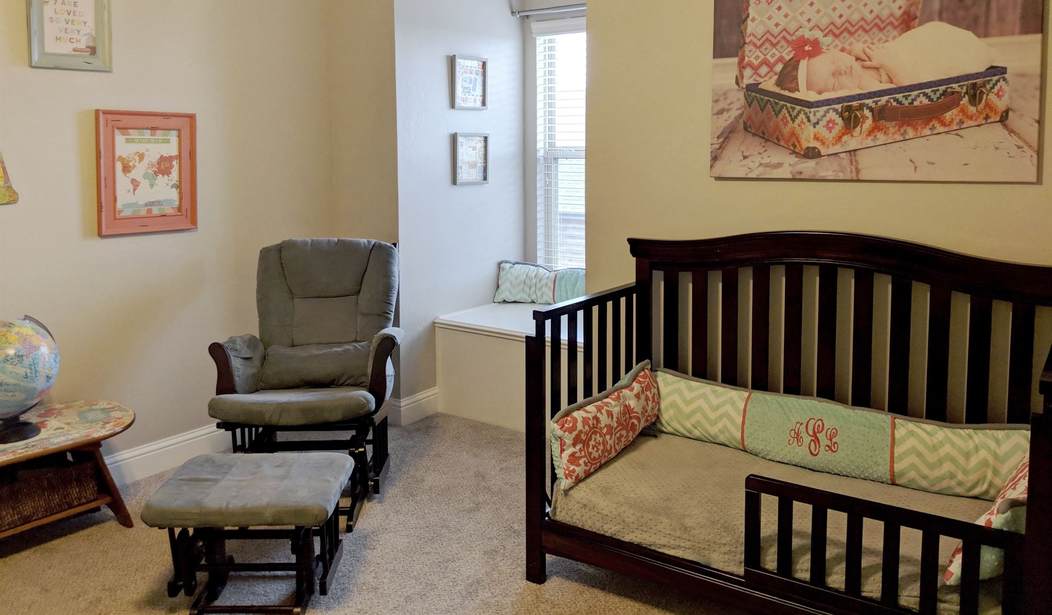For years now, we've been analyzing the alarming drop in birth rates in the United States and most of the Western world. This situation is no longer hypothetical in terms of being a potential crisis. The United States has already fallen below the minimum reproductive replacement rate (an average of 2.1 children per adult woman) for multiple years in a row. Somewhat ironically, it's only the massive influx of illegal migrants that is keeping our heads above water at the moment. While there is clearly a valid question to be asked as to whether a population that is increasingly comprised of illegal aliens is worth saving, it's still an issue of great concern. USA Today gathered a group of "experts" in this field who surveyed childless American women and couples to try to figure out why so few people are choosing to bear children today. The answers probably won't be all that shocking to most of you, but they also don't point to any quick or easy solutions.
Lisa and Michael Harris decided early in their relationship that children weren't likely in their future.
The Alexandria, Virginia-based couple married in 2019, when Michael was 60 and Lisa 49. While Lisa made clear during one of their first dates that she "reserved the right to adopt," the couple said there was little discussion of having kids after that. Instead, the Harrises have poured their time and resources into their social life, careers and travel. Both work in cybersecurity, and Lisa said getting her two master's degrees would have been more difficult with children.
"I never felt the need," Lisa said. "I felt a-okay to take care of myself, put food on my own table, get myself out the door in the morning. But the thought of dragging some innocent by standard into that? Not so sure."
People without children offered a variety of reasons for being childless. But despite concerns about rising rates of infertility globally, only a relatively small number of Americans cited that as the problem. Just 13% of younger couples and 15% of older (age 49 and above) couples cited an inability to conceive as the reason. The modern advent of medical technology including IVF and fertility drugs is credited with that statistic being as low as it is.
Among younger adults, the primary reasons given for not having children were as follows:
- Wanting to focus on other things such as their careers 44%
- Concerns about the state of the world 38%
- Costs of raising a child 36%
- Concerns about the environment 26%
For all of the talk we hear about climate change, relatively few younger people are offering that as a reason not to bring children into the world. This is either a sign of selfishness or a clue that most of them don't really believe it's that big of a deal. Concerns over the cost of raising children are certainly valid. Raising kids is expensive. Studies show that the average parent will pay nearly a quarter million dollars to raise a child to the age of 18. But the government already offers substantial tax breaks to families with children and numerous child care and welfare programs exist to provide help to those in need. You don't have to be born into the families of Silicon Valley tech barons to be able to start a family.
I think most of us can relate to the concerns of those who are so concerned about the current state of the world that they are avoiding procreation. The world is currently a mess and there is little reason to deny that. Who wants to bring children into a world that appears to be going up in flames? Of course, it's a mess of our own making, particularly these days. It should be fixable if we were united in a desire to do so, yet we seem to be stuck in a doom loop at this point.
That brings us to the most commonly cited reason: a desire to "focus on other things." At least to me, this seems like selfish, short-sighted thinking. The "DINKs," as they are known ("double income, no kids") may have extra money available to go out partying or even save toward retirement, but the day will come when they look around their otherwise empty homes and realize that something fundamentally vital has been missing for all of their adult lives together. And as the specter of old age looms, they will be left wondering who will care for them in their dotage. If nothing else, they are living in denial of what is one of the fundamental, defining characteristics of all living creatures: the drive to reproduce and continue the species. If we have managed to evolve our way past that naturally inherent characteristic, we may as well throw in the towel because the game is essentially over.








Join the conversation as a VIP Member